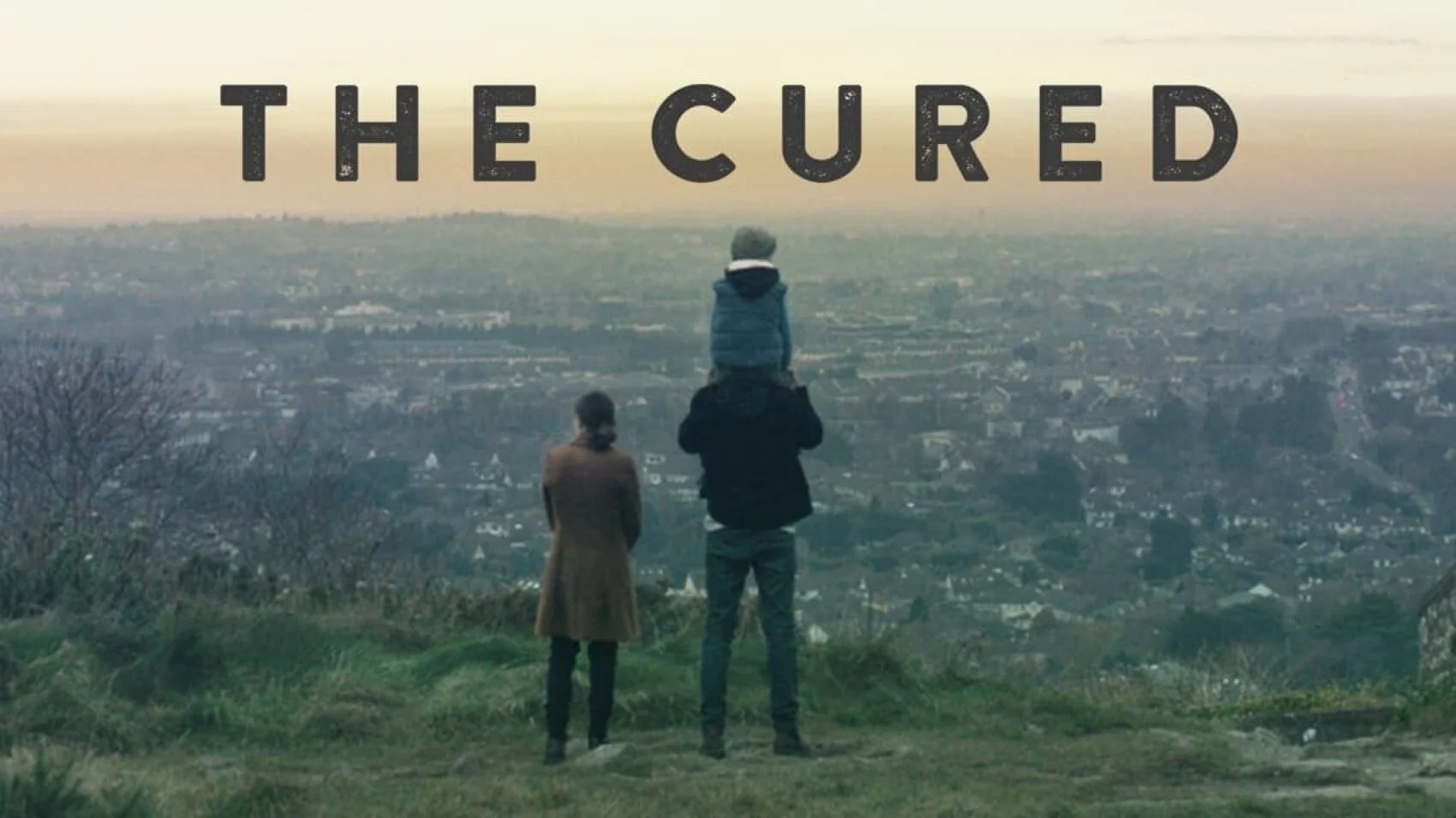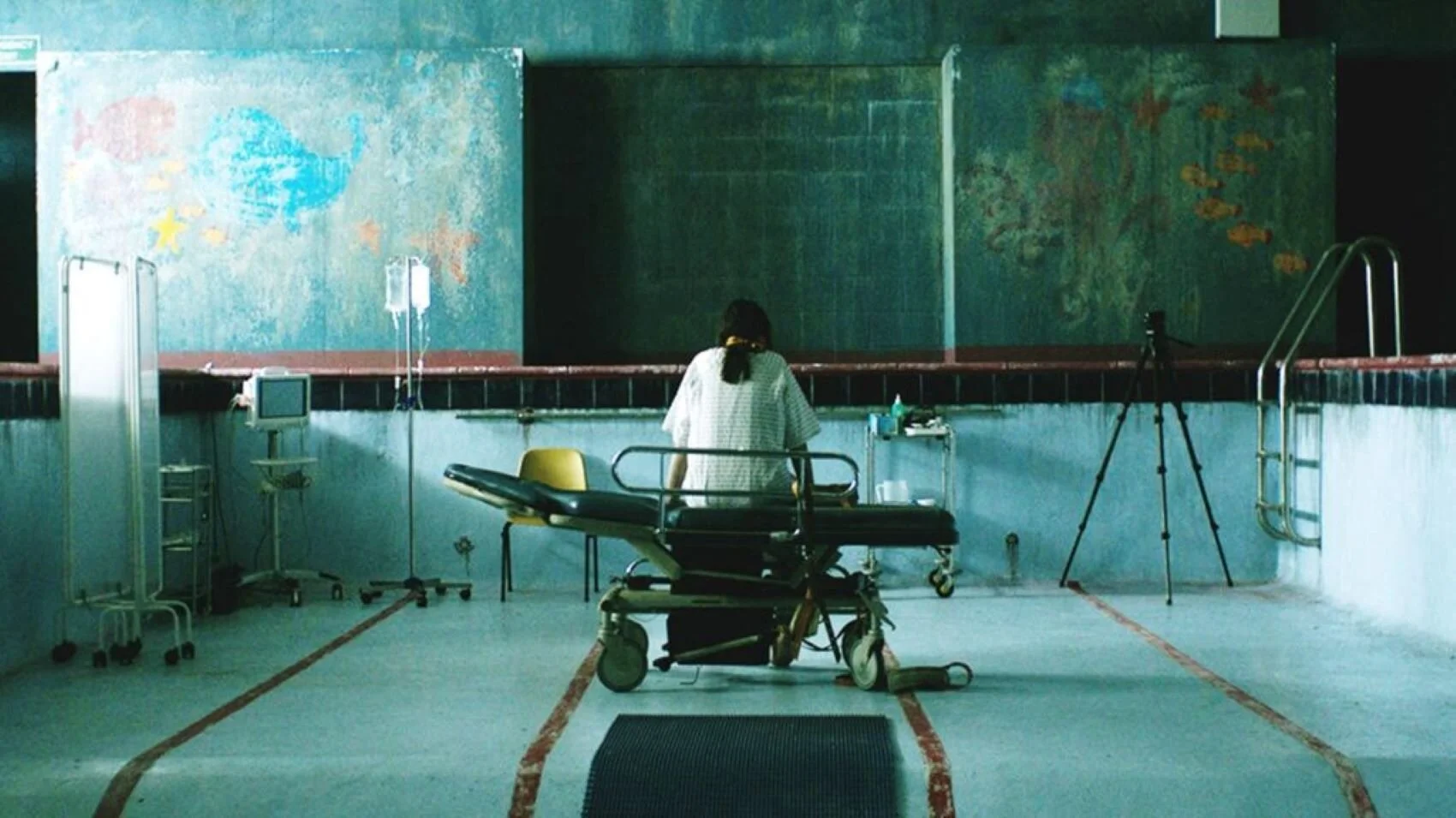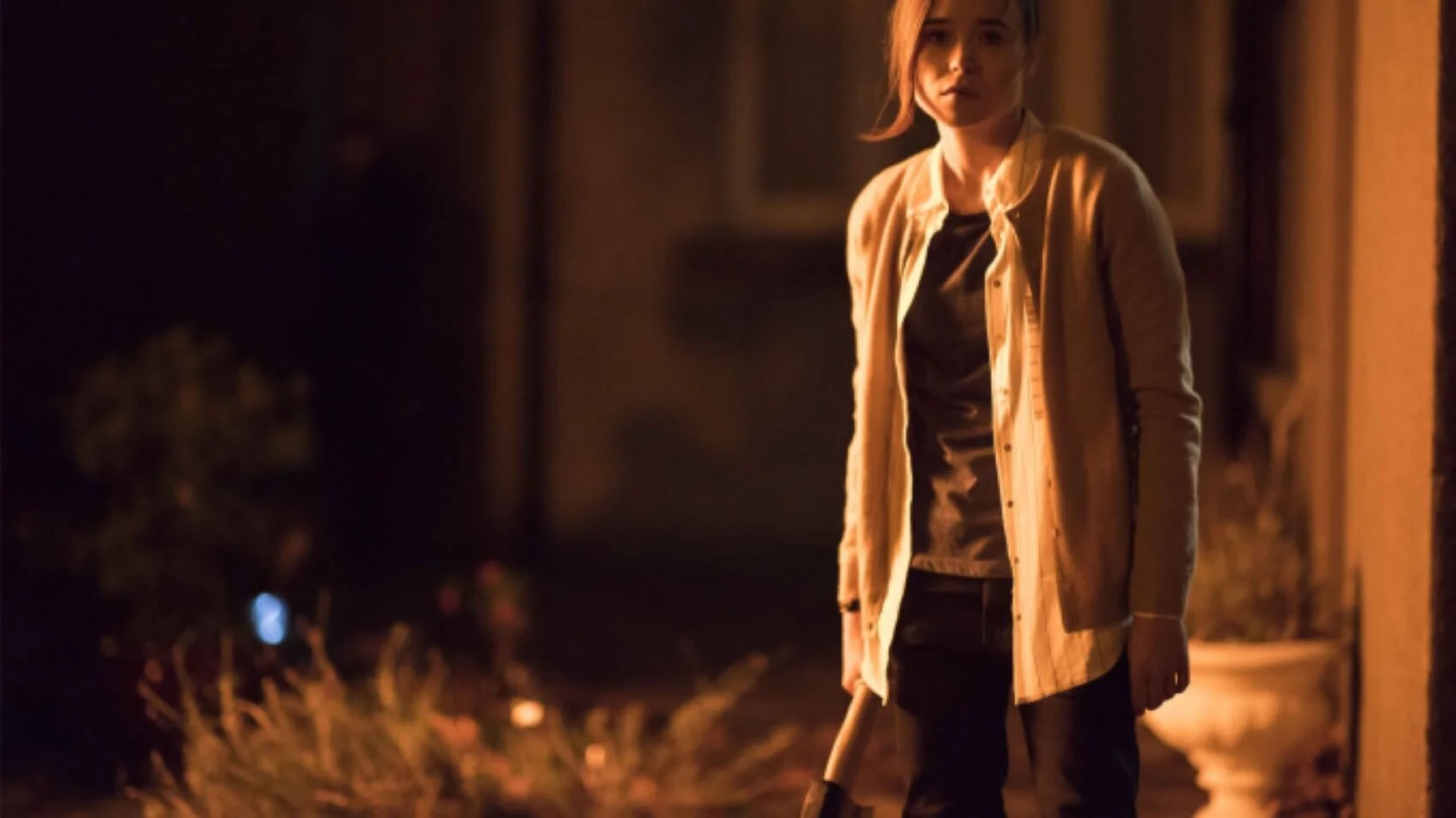[Film Review] The Cured (2017)
“For years, the Maze virus spread across Europe, causing a violent psychosis in the infected. While most of the continent managed to control the contagion, the virus devastated Ireland. Eventually, amid the chaos, a cure was found. In 75% of cases treatment was successful. But the Cured remembered everything they did while infected. Now, as the Government debates the fate of the resistant 25%, the last wave of Cured are ready to be reintegrated into society.”
The text above introduces David Freyne’s The Cured (2017), a film about a society reintegrating cured zombies. First we meet two men who had been infected and are now cured - Senan (Sam Keeley) and Conor (Tom Vaughan-Lawlor), who seem to understand each other after going through quarantine together. Senan has the opportunity to leave the treatment center to go and live with his late brother Luke's wife, Abbie (Elliot Page). Abbie and her young son Cillian (Oscar Nolan) have been managing on their own, after finding Luke dead when the outbreak started. Abbie works as a journalist and seems mentally strong. She takes some flak in the community for housing a Cured, but it doesn’t shake her. Many survivors do not see the Cured as people anymore, and hold them accountable for the violent crimes committed when the infected were sick and out of control. Many of the Cured suffer harassment and attacks from people who were never infected, and who are grieving loved ones lost to the Maze virus and the fallout from it. As Senan is trying his best to get back to normal, work his janitorial job, and stay out of trouble, there is a revolution brewing led by the Cured Alliance. Senan is pulled between feeling a loyalty to those he recovered with, and feeling a desire to put it all behind him. He also has a secret he desperately wants to keep from Abbie. As the Government begins to execute the infected who are resistant to the cure, tensions build, and Senan has to decide what he will do.
It’s impossible for me to ignore the Covid-shaped elephant in the room. All zombie or virus outbreak movies feel a little differently in light of the Covid-19 pandemic we have all been experiencing over the last nearly two years. The idea of a virus ravaging our world while we watch in real time is no longer an abstract thought experiment. In The Cured, those who have recovered from infection are stigmatized and blamed. Yes, they committed horrible crimes while they were sick, including murder and cannibalism. But it’s understood that they were not in control of their actions. When the sick recover, they remember everything they did, and have to live with guilt and pain. Then there are about a quarter of the infected - about 5,000 people - for whom the cure is not working, and the government decides the right move is to kill them. It’s decided that resources are better spent moving on from the virus rather than on finding a stronger, more inclusive cure. Maybe that’s an easier decision to make from a government seat, far away from the people, but when one of those 5,000 is someone you love, it’s a monstrous idea. It brings to mind the way many people have felt throughout the pandemic - abandoned by the institutions that were meant to protect them, and angry at others for being sick, even though no one would wish to be sick and everyone wants the pandemic to be over. While many people in the developed world have been vaccinated and are ready to move past Covid, there are still too many individuals who have not had a chance to be vaccinated, including children, and those who are not as protected by the vaccine, like immunocompromised people. Perhaps it’s easy to say we all need to move on, unless you or your loved ones are feeling left behind.
As a person living in the United States, The Cured also brought to mind the long overdue reckoning we have been facing in our criminal justice and law enforcement systems. In the film, the people who were cured of the Maze virus recover in treatment centers, until they are able to find a job and a place to live, and be released back into society. It sounds great in theory, but in practice, it’s full of problems. The officers and staff at the treatment centers bully and degrade the Cured, and at worst, physically abuse them for anything perceived as stepping out of line. When the Cured are back on the outside, they face a slew of stigma. It’s hard for them to find work, make friends, or really get back to any kind of normal life, and they stick with people they met on the inside. This is a stark analogy to the prison system in the US, and it shows why it can be hard to ever escape the stigma of being incarcerated. Senan struggles with the absolutely realistic dilemma of trying to stay safe and take care of yourself, versus fighting for change and respect.
The Cured is a moving and visually stunning film, with skillful acting and thoughtful themes. It would have been an exceptional movie in any year. It is an especially meaningful movie now.








![[Film Review] V/H/S/85 (2023)](https://images.squarespace-cdn.com/content/v1/5fe76a518d20536a3fbd7246/1697455043249-K64FG0QFAFVOMFHFSECM/MV5BMDVkYmNlNDMtNGQwMS00OThjLTlhZjctZWQ5MzFkZWQxNjY3XkEyXkFqcGdeQXVyMTUzMTg2ODkz._V1_.jpg)
![[Film Review] Kill Your Lover (2023)](https://images.squarespace-cdn.com/content/v1/5fe76a518d20536a3fbd7246/1697465940337-T55VQJWAN4CHHJMXLK32/56_PAIGE_GILMOUR_DAKOTA_HALLWAY_CONFRONTATION.png)
![[Film Review] Shaky Shivers (2022)](https://images.squarespace-cdn.com/content/v1/5fe76a518d20536a3fbd7246/1696442594997-XMJSOKZ9G63TBO8QW47O/Screenshot+2023-10-04+at+18.59.33.png)
![[Film Review] Elevator Game (2023)](https://images.squarespace-cdn.com/content/v1/5fe76a518d20536a3fbd7246/1696440997551-MEV0YZSC7A7GW4UXM5FT/Screenshot+2023-10-04+at+18.31.42.png)
![[Film Review] A Wounded Fawn (2022)](https://images.squarespace-cdn.com/content/v1/5fe76a518d20536a3fbd7246/1695484054446-7R9YKPA0L5ZBHJH4M8BL/Screenshot+2023-09-23+at+16.42.24.png)
![[Film Review] Perpetrator (2023)](https://images.squarespace-cdn.com/content/v1/5fe76a518d20536a3fbd7246/1695483561785-VT1MZOMRR7Z1HJODF6H0/Screenshot+2023-09-23+at+16.32.55.png)
![[Film Review] Mercy Falls (2023)](https://images.squarespace-cdn.com/content/v1/5fe76a518d20536a3fbd7246/1695482997293-E97CW9IABZHT2CPWAJRP/Screenshot+2023-09-23+at+16.27.27.png)






















![[Editorial] 10 Films & Events to Catch at Soho Horror Film Fest 2023](https://images.squarespace-cdn.com/content/v1/5fe76a518d20536a3fbd7246/1700819417135-299R7L4P0B676AD3RO1X/Screenshot+2023-11-24+at+09.41.52.png)
![[Editorial] 9 Horror Nintendo Switch Games To Play](https://images.squarespace-cdn.com/content/v1/5fe76a518d20536a3fbd7246/1697214470057-3XZXX8N4LYIMDFWS6Z3P/Screenshot+2023-10-13+at+17.20.13.png)
![[Mother of Fears] Mothering in Silence in A Quiet Place (2018)](https://images.squarespace-cdn.com/content/v1/5fe76a518d20536a3fbd7246/1696445921315-HZJ2DZYQIH6VVWXBO2YL/Screenshot+2023-10-04+at+19.52.29.png)
![[Editorial] 5 Female Focused Horror Book Recommendations](https://images.squarespace-cdn.com/content/v1/5fe76a518d20536a3fbd7246/1696441981361-52EQCTJ7AT2QF1927GM7/919xtm6d3fL._AC_UF894%2C1000_QL80_.jpg)
![[Editorial] 9 Best Slashers Released Within 10 Years of Scream (1996)](https://images.squarespace-cdn.com/content/v1/5fe76a518d20536a3fbd7246/1695478839037-LOFHGVM3H6BMSZW7G83M/Screenshot+2023-09-23+at+15.15.11.png)
![[Mother of Fears] Mother Vs. Monster in Silent Hill (2006)](https://images.squarespace-cdn.com/content/v1/5fe76a518d20536a3fbd7246/1695485781119-H6GNP0G3J2TLPAOIABV7/Screenshot+2023-09-23+at+17.11.56.png)
![[Editorial] 9 Terrifying Cerebral Visions in Horror Movies](https://images.squarespace-cdn.com/content/v1/5fe76a518d20536a3fbd7246/1693509801235-X23OL50T1DVGECH0ZJK2/MV5BMjQ0MTg2MjQ4MV5BMl5BanBnXkFtZTgwMTU3NDgxMTI%40._V1_.jpg)
![[Mother of Fears] I Don’t Wanna Be Buried in a Pet Sematary (1989) and (2019)](https://images.squarespace-cdn.com/content/v1/5fe76a518d20536a3fbd7246/1691328766069-QFNAVJOMFZVZ5CLU1RWM/Screenshot+2023-08-06+at+14.23.13.png)

If you know me at all, you know that I love, as many people do, the work of Nic Cage. Live by the Cage, die by the Cage. So, when the opportunity to review this came up, I jumped at it.